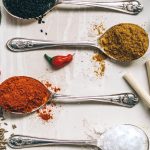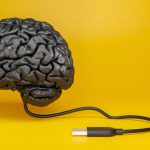The greatest wealth is health.
~Virgil
Throughout time, health has always been referred to as the greatest treasure, above any possessions or achievements. After all, when we are not healthy, we cannot enjoy the beauty of life. Whether you count happiness in possessions or experiences, it is difficult to enjoy either one of them without health.
In recent years, there has been a lot of push to be healthy in our society, but what exactly do we mean when we talk about health? According to the Oxford Dictionary ‘health’ is, “the state of being free from illness or injury,” or, “a person’s mental or physical condition.”
What Does Healthy Really Mean?
It is health that is real wealth and not pieces of gold and silver.
~ Mahatma Gandhi
While the Oxford definition is a good starting point, it’s hardly conclusive, which then begs the question: what does the word healthy mean to you? Does being healthy mean being free from disease? Is it being free from taking pills and seeing a doctor on a regular basis? Or is it having your five-a-day, and training to run a marathon? And what about that saying, ‘the absence of illness isn’t health’?
To me, being healthy is feeling good in my body when I wake up in the morning. Health is feeling like I can take on the day and have enough energy to get through the challenges of life without being exhausted when I come home in the evening. It is a balance of having the energy to push forward with new projects while nourishing the body and soul so that I can be recovered and ready for the next day.
If you type ‘health’ in an image search, Google will find a lot of pictures of hearts, vegetables, and stethoscopes. Google also tells me the predominant colours for health are red and green. This choice of colours and images makes sense to me, since I often prescribe more love and green veggies to my clients to improve their energy levels and get healthier. However, there are a few other elements that contribute to health beyond being free of illness!
Our Body’s Role In Illness
Some illnesses enter our body from the outside, such as the common cold or a flu. There are also other forms of illness that are developed within the body, like cancer, heart attacks or diabetes. Our bodies are extraordinary in their ability to recover from illness and return to normal functioning. We don’t need to do much for the body to take care of itself, it never forgets to breathe, keeps a constant temperature, and continues to pump blood to distribute oxygen, nutrients, and other elements vital to our survival.
When the body is free from stress, well rested and properly nourished, it will defend an illness that comes from external environments. It will also prevent the development of internal illnesses. The problems our body can’t help us with are high stress, multiple tasks, information overload, and the lack of time to dedicate to their processing and resolution. When not addressed, these factors can wear out the body system, so that it loses immunity and is unable to perform its function of keeping the body in health and homeostasis.
The Elements of Health
Success begins with hard work. Happiness begins with good health.
~Dr T.P.Chia
Western medicine analyses health using measures such as blood analysis, body temperature, the presence of viruses or bacterial infections; namely it addresses existing diseases. On the other hand, Eastern medicine concentrates on prevention of disease measuring other things that must be considered when talking about the body’s ability to perform at an optimal level. I do not discard the importance of addressing diseases using Western medicine when illness occurs, but what if there are things we could do today that can prevent us suffering from illness tomorrow?
In my view, individual health is a result of three main factors: the internal wellbeing of the body, the environment in which it operates on a daily basis, and external forces that come into the environment to which the body is exposed to. When I work with my clients, I introduce them to a number of elements that work together to align those three things and optimise your health:
- Food and Nutrition — We’ve all heard the saying, “you are what you eat.” This element covers what we put into our body every day.
- Physical Activity — Cardio and muscular strength and flexibility are important in supporting the functions of the body and maintaining healthy energy levels.
- Sleep and Rest — Relaxation is known to be one of the best remedies for stress and clicking the body into its balanced activity, homeostasis. This element is key to supporting the normal function of the body.
- Home Environment — Home is a place where you can rest and recover after a day of activity. It is important to have a calm and comfortable space where you can relax, be yourself, and recharge.
- Relationships and Social Life — Vitamin L, “Love”, is an important and invisible fighter of disease. When we feel love, we feel empowered to face life’s challenges.
- Career and Education — When we spend most of our waking hours at our jobs or at school, it is important to feel good about this area of life to maintain a positive balance.
- Spirituality — Connection to spirituality, whether it is religion, meditation, yoga, dance or another way of connecting body and spirit, is of great consequence to maintaining health and overall balance.
5-Minute Health Assessment
Now it’s your turn, with a quick and easy 5-Minute Health Assessment. On a scale of one to ten, where would you put your own health for each of the health elements above? It’s important to be honest with yourself, since identifying and diagnosing the problem is the first step towards the solution. Which element is your weakest at the moment? It is probably the one that is worth dedicating more time to and taking steps to improve.













